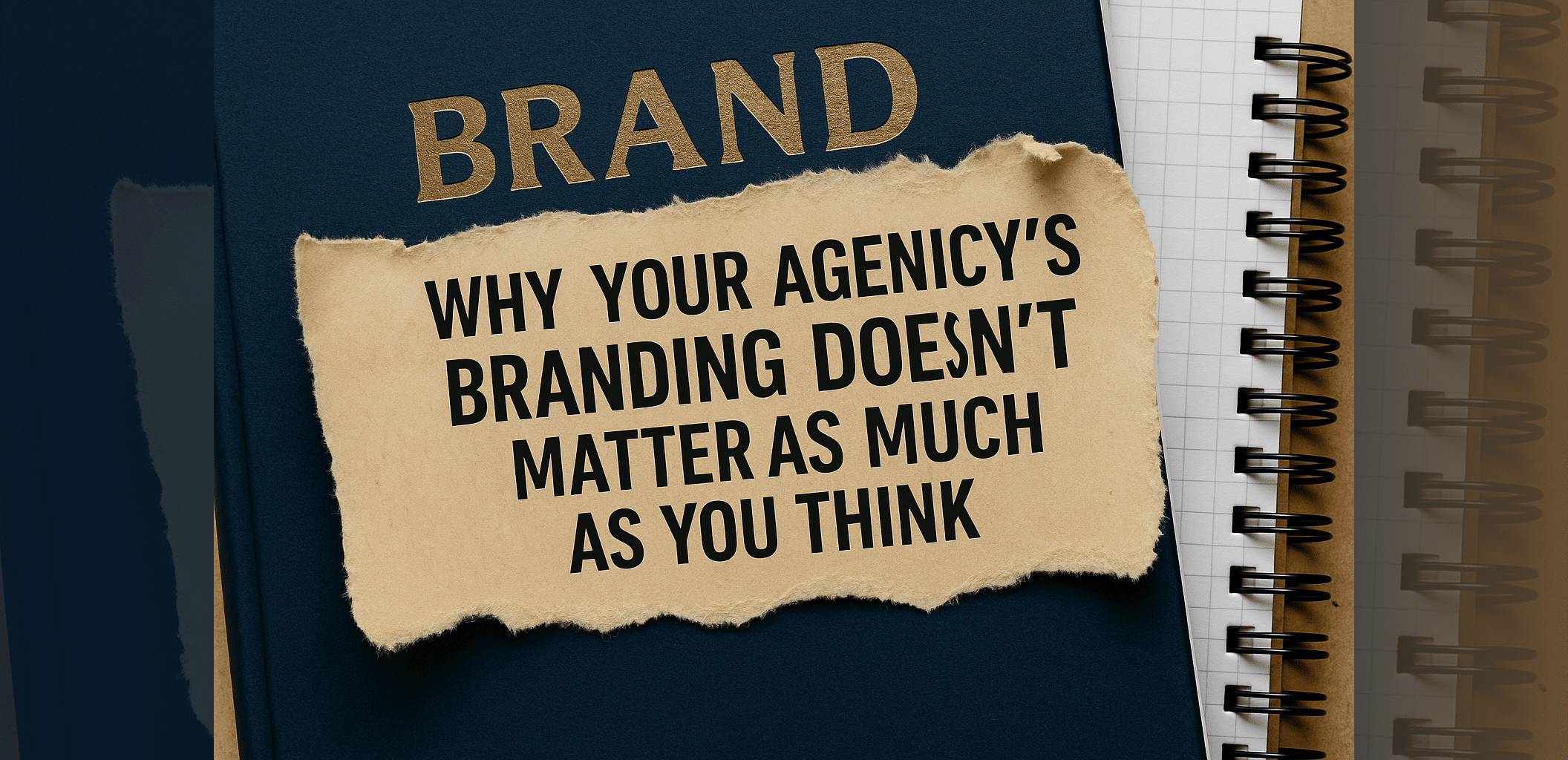Why Your Agency’s Branding Doesn’t Matter as Much as You Think

Agencies love to talk about branding. New logos. Fresh taglines. Shiny signboards. Leaders convince themselves that branding is what attracts clients and what keeps agents loyal.
But here’s the uncomfortable truth: your agency’s branding doesn’t matter nearly as much as you think it does.
Clients Don’t Choose a Logo
When a family decides to sell their home, they don’t sit down and compare agency logos. They don’t say, “We’ll pick the one with the nicest font.” They call the person they know and trust.
If that’s you, the deal is yours—whether you’re wearing a global franchise badge or working under a three-person boutique. Branding may decorate the conversation, but trust closes the deal.
Agents Don’t Stay for Branding Either
Agency owners often believe their logo binds agents to the firm. It doesn’t. High-performing agents stay for:
- Splits that reward their production
- Tools and systems that make deals faster
- Access to co-broking and inventory that grows their pipeline
- A culture that doesn’t waste their time
When those things stop delivering, agents move. A nice logo doesn’t stop them.
The Nuanced Counterpoint: When Branding Does Matter
To be fair, branding can matter—at least at the margins. For a nervous first-time seller who wants the comfort of a well-known name, a strong franchise brand might feel safer. For a rookie agent with no personal track record, a recognizable agency can lend credibility in early conversations.
But even then, this advantage is temporary. Once trust is built—or not built—the logo fades into the background. Branding can open the door, but it can’t carry you across the finish line.
The Branding Mirage: Real-World Proof
Consider agencies that dominate despite “meh” branding. Many local firms in Malaysia run plain logos and dated websites, yet they capture outsized market share because their systems—commission tracking, lead flow, co-broking—actually work. On the flip side, there are franchises with gleaming global branding that collapsed locally because they couldn’t deliver consistent leads or fair payouts. The market always exposes the gap between style and substance.
What Actually Matters
Branding is replaceable. Substance isn’t. The agencies that grow and endure invest in:
1. Relationships
Trust is the one currency that compounds. A negotiator who helps a family buy a home today often becomes the go-to advisor for refinancing, upgrading, or renting out that property years later. That repeat cycle has nothing to do with logos—it’s about the personal trust earned in the first transaction.
2. Systems
Systems are what turn opportunity into throughput. A CRM that auto-routes fresh leads to the right negotiator within seconds keeps response times under five minutes—a critical metric that doubles conversion rates. Or consider lead-sharing boards that match buyer needs with hidden inventory instantly. These aren’t branding exercises—they’re growth multipliers.
3. Alliances
No single agency can cover everything. Alliances—structured co-broking networks with fair, enforceable rules—create scale without consolidation. For example, agencies that adopt shared standards for listings and commission splits build a moat that new entrants struggle to replicate. Alliances expand market presence and raise professionalism in ways logos never can.
The Bottom Line
Branding feels important because it’s visible. But visibility isn’t the same as defensibility. Clients and agents alike care less about the logo on your business card and more about the results you deliver.
Yes, branding might open a door. But relationships, systems, and alliances are what keep it open.
So stop obsessing over your font and color scheme. Start obsessing over your pipeline, your response times, and your network. That’s what builds a business that lasts.











































































































